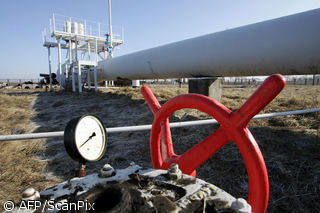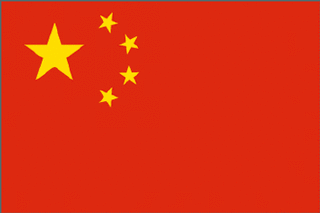Sweden Thrives on Exports One Year After Voters Reject the Euro
Published:
16 September 2004 y., Thursday
A year after Swedish Prime Minister Goeran Persson told voters his country needed the euro to compete in world markets, the Swedish economy has done a good job of proving him wrong.
The National Institute of Economic Research in Stockholm last month raised its economic growth forecast to 3.5 percent this year and 3 percent in 2005. A global expansion has boosted demand for Swedish exports while worker productivity has increased faster than in the 12 countries sharing the euro, which 56 percent of Swedish voters rejected on Sept. 14, 2003.
Swedish and international companies are betting on Sweden. Last month, for example, Atlet AB said it would close its forklift plant in Oberhausen, Germany, and move about 30 jobs to its factory in Moelnlycke, Sweden. Second-quarter foreign direct investment in Sweden jumped to a net 19.9 billion kronor ($2.7 billion), after a year-earlier outflow of 31.4 billion kronor.
The European Central Bank expects the economy of the euro region to expand about 1.9 percent this year and 2.3 percent in 2005. By one study, Sweden ranks second in the world in productivity.
Sweden, a nation of 9 million people that joined the European Union in 1994, accounts for 2 percent of the bloc's population and 2.7 percent of economic production. Its economy has grown faster than that of the euro region for eight of the past 10 years.
Šaltinis:
Bloomberg
Copying, publishing, announcing any information from the News.lt portal without written permission of News.lt editorial office is prohibited.
The most popular articles
 The European Commission has approved, under EC Treaty state aid rules, an amendment to a Lithuanian scheme allowing aid to be granted of up to €500 000 per company, initially approved on 8 June 2009.
more »
The European Commission has approved, under EC Treaty state aid rules, an amendment to a Lithuanian scheme allowing aid to be granted of up to €500 000 per company, initially approved on 8 June 2009.
more »
 As agreed by the President of the European Commission and the President of the Russian Federation during the last EU-Russia Summit in Khabarovsk, the EU and Russia have strengthened the current dispositions under the EU-Russia Energy Dialogue to prevent and manage potential energy crises, with an enhanced Early Warning Mechanism.
more »
As agreed by the President of the European Commission and the President of the Russian Federation during the last EU-Russia Summit in Khabarovsk, the EU and Russia have strengthened the current dispositions under the EU-Russia Energy Dialogue to prevent and manage potential energy crises, with an enhanced Early Warning Mechanism.
more »
 The European Union has today presented to the World Trade Organization the trade facilitation projects it has financed between 2006 and 2008.
more »
The European Union has today presented to the World Trade Organization the trade facilitation projects it has financed between 2006 and 2008.
more »
 The European Commission has authorised, under the EC Treaty’s rules on state aid, a planned state guarantee by Romania to enable Ford Romania SA to access a loan from the European Investment Bank (EIB).
more »
The European Commission has authorised, under the EC Treaty’s rules on state aid, a planned state guarantee by Romania to enable Ford Romania SA to access a loan from the European Investment Bank (EIB).
more »
 The economic crisis has left many countries with budget deficits well over the 3% limit. The commission is proposing deadlines for reducing the gaps.
more »
The economic crisis has left many countries with budget deficits well over the 3% limit. The commission is proposing deadlines for reducing the gaps.
more »
 Statistics Lithuania informs that in October 2009, against September, prices for consumer goods and services went down by 0.4 per cent.
more »
Statistics Lithuania informs that in October 2009, against September, prices for consumer goods and services went down by 0.4 per cent.
more »
 Lithuania’s Vice-Minister of Foreign Affairs Šarūnas Adomavičius took part in bilateral political consultations with representatives from foreign affairs, commerce and transport ministries of the People’s Republic of China.
more »
Lithuania’s Vice-Minister of Foreign Affairs Šarūnas Adomavičius took part in bilateral political consultations with representatives from foreign affairs, commerce and transport ministries of the People’s Republic of China.
more »
 Under the budgetary surveillance powers conferred by the EU Treaty, the European Commission today proposed to the Council to set 2013 as the deadline for the correction of the budget deficits in Austria, the Czech Republic, Germany, Slovakia, Slovenia, the Netherlands and Portugal.
more »
Under the budgetary surveillance powers conferred by the EU Treaty, the European Commission today proposed to the Council to set 2013 as the deadline for the correction of the budget deficits in Austria, the Czech Republic, Germany, Slovakia, Slovenia, the Netherlands and Portugal.
more »
 A joint partnership between the World Bank, the Moldovan Ministry of Agriculture and Food Industry and the Ministry of Environment was launched in Moldova’s capital in the late days of October.
more »
A joint partnership between the World Bank, the Moldovan Ministry of Agriculture and Food Industry and the Ministry of Environment was launched in Moldova’s capital in the late days of October.
more »
 World Bank Group President Robert B. Zoellick today joins senior officials from the Government of Singapore to launch a new global urban strategy that will guide Bank advisory services and financing in the sector over the next decade.
more »
World Bank Group President Robert B. Zoellick today joins senior officials from the Government of Singapore to launch a new global urban strategy that will guide Bank advisory services and financing in the sector over the next decade.
more »